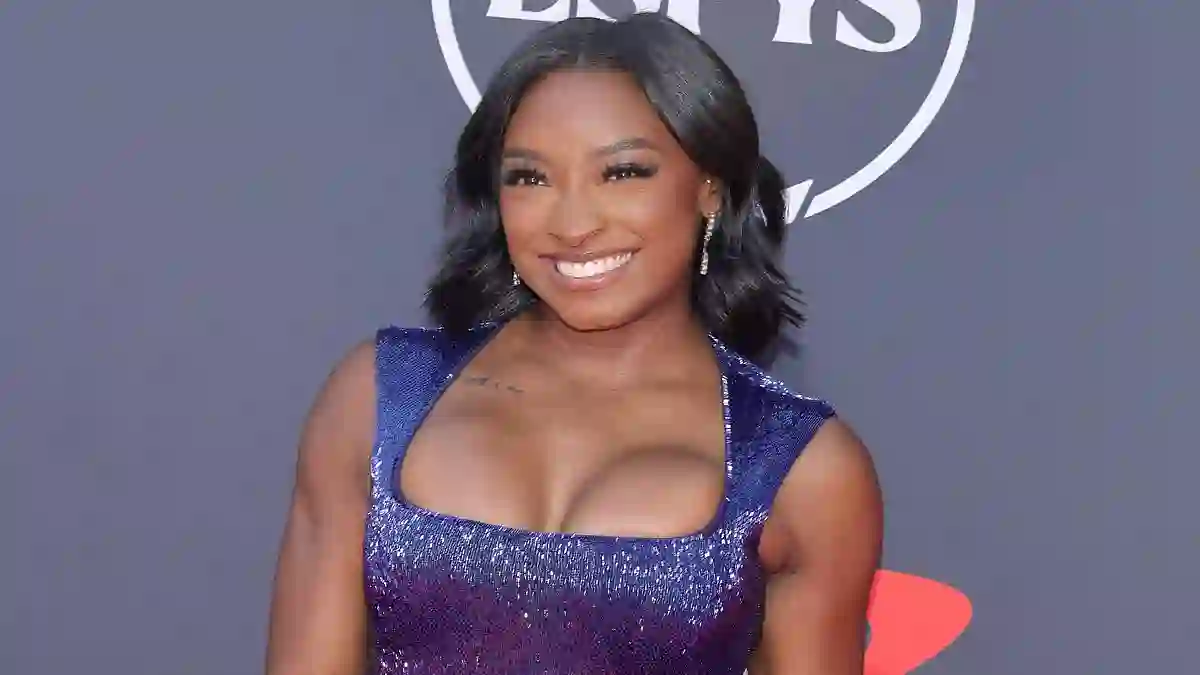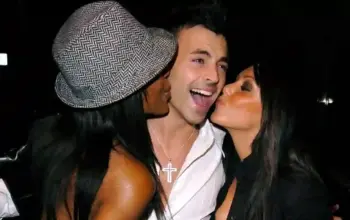Wednesday night’s ESPYs at the Dolby Theatre in Los Angeles started on a high note for Simone Biles — but things quickly took a controversial turn.
While the Olympic gymnastics icon was honored with the first award of the night, it was her words, not just her medals, that ended up making headlines.
A Sweet Red Carpet Moment Turns Into a Firestorm
Before the show even began, Simone and her NFL husband Jonathan Owens had everyone gushing on the red carpet.
The couple looked smitten and camera-ready, soaking up the spotlight as sports stars from across the globe gathered for the annual celebration.
But once inside, when Biles stepped on stage to accept her Best Championship Performance award, the tone shifted.
At 28 years old and already a seven-time Olympic gold medalist, Biles was celebrated for her dominant return to the world stage at last year’s Paris Olympics — where she bagged three golds and a silver.
However, it was her speech that got people talking for all the wrong reasons.
From Tribute to Controversy in One Sentence
Biles opened her speech with heartfelt words about the recent devastating floods in Texas.
She expressed condolences to those impacted by the tragedy, acknowledging the pain and loss many families are still enduring.
But after thanking her team, coaches, and supporters, Biles made a comment that sparked immediate backlash:
“That was very unexpected, especially in a category of all men.
So thank you guys so much… I believe in the power of sport, the power of us, and, of course, the power of she.”
That final phrase — “the power of she” — lit a fire across social media, where users were quick to connect her words to an ongoing public feud.
The Transgender Athlete Debate Comes Roaring Back
For those who’ve followed Simone’s recent online exchanges, the outrage wasn’t just about one speech.
Just weeks ago, she found herself in a heated back-and-forth with conservative commentator and former swimmer Riley Gaines, who has been vocally opposed to transgender athletes participating in women’s sports.
Biles had clapped back at Gaines for criticizing a Minnesota high school softball team that competed with a transgender pitcher.
Simone’s now-deleted post told Gaines to “bully someone your own size — which would ironically be a male.” That reply ignited major backlash.
She followed up days later with a lengthy apology on X (formerly Twitter), saying:
“I’ve always believed competitive equity and inclusivity are both essential in sport… and it didn’t help for me to get personal with Riley, which I apologize for.”
Still, her speech at the ESPYs reignited the conversation — and some people weren’t having it.
Online Critics Slam Her Gender-Focused Message
Across X, users expressed their frustration with what they felt was a politically charged moment.
Some accused her of hypocrisy, pointing out that she advocated for inclusivity while ignoring concerns about fairness in women’s sports.
Others mocked her surprise at winning in a “male-dominated” category, especially in light of her past remarks.
Here’s a sample of some of the pushback:
-
“Still the only thing she can talk about is gender lmaooo #ESPYS2025.”
-
“She says she believes in the power of she, but supports men playing against women?”
-
“This is the girl who wants trans women in women’s sports — got it.”
A Victory Worth Celebrating, Despite the Noise
Even amid the criticism, Biles’ performance on the Olympic stage last summer was undeniably powerful.
Her gold medal comeback — after struggling with the “twisties” during the Tokyo Games — was a huge win not just for her career, but for athletes battling mental health challenges everywhere.
Her return was proof of resilience, and Wednesday night’s award was a recognition of that strength.
The Bigger Question: Where Does Sport Go From Here?
Simone Biles has never shied away from using her platform, whether it’s about abuse in gymnastics, mental health, or now, gender in sports.
While her comments may divide opinion, she’s continuing to push conversations forward — even if they come with backlash.
As the debate around trans inclusion in sport evolves, so does the role of athletes like Biles, who are caught between advocacy, expectation, and public scrutiny.



